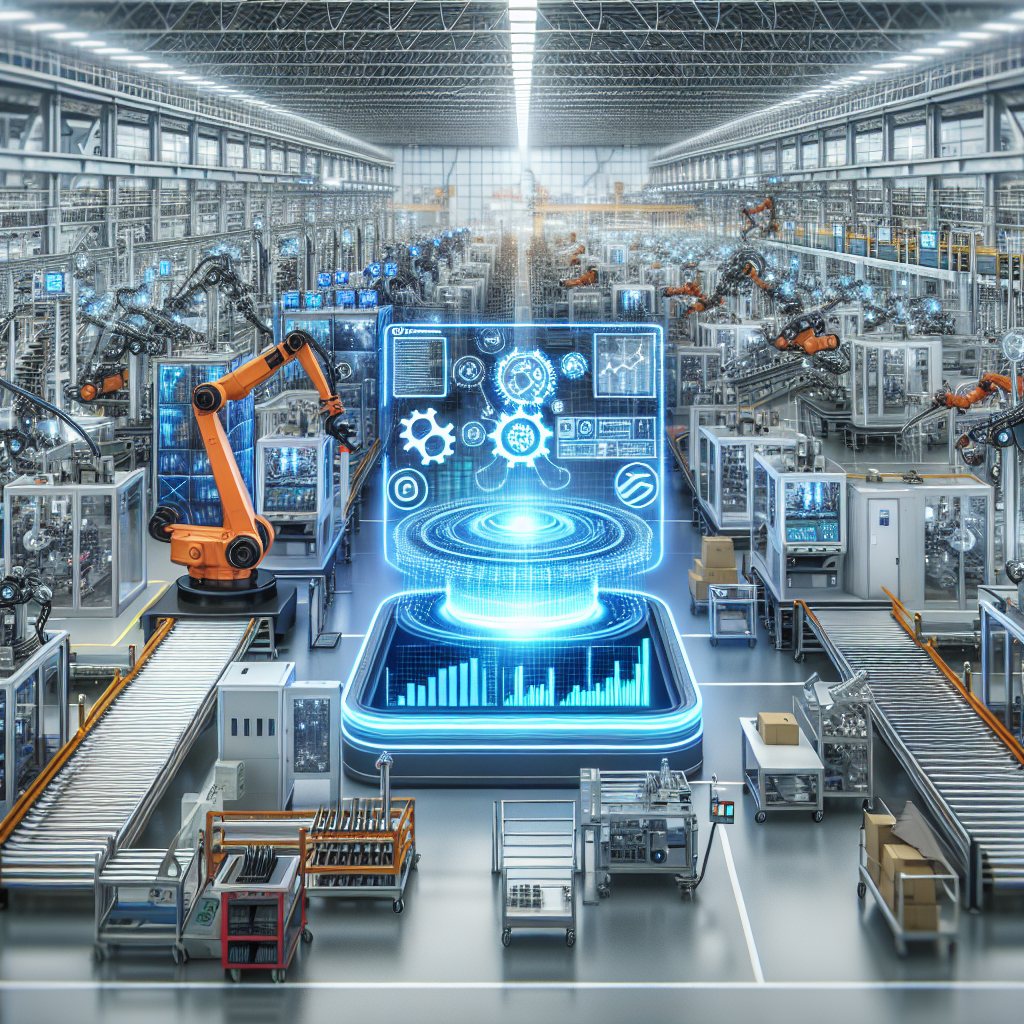The Future of Manufacturing: AI Integration
The manufacturing industry has always been at the forefront of technological advancements. From the Industrial Revolution to the rise of automation, manufacturing has continuously evolved to become more efficient and productive. In recent years, the integration of artificial intelligence (AI) has been revolutionizing the manufacturing sector, paving the way for a future that is faster, smarter, and more sustainable.
AI Integration in Manufacturing
AI refers to the simulation of human intelligence processes by machines, especially computer systems. In the manufacturing industry, AI is being used to optimize processes, improve quality control, and enhance decision-making. By analyzing vast amounts of data in real-time, AI systems can identify patterns, predict outcomes, and make recommendations, ultimately leading to more efficient and cost-effective production.
One of the key areas where AI is making a significant impact in manufacturing is predictive maintenance. By monitoring equipment and machinery in real-time, AI systems can detect potential issues before they occur, allowing for proactive maintenance and minimizing downtime. This not only reduces maintenance costs but also improves overall productivity and efficiency.
AI is also being used to optimize production processes. By analyzing historical data and real-time information, AI systems can identify bottlenecks, optimize workflows, and improve resource allocation. This results in faster production times, lower costs, and higher quality products.
Furthermore, AI is revolutionizing quality control in manufacturing. By using machine learning algorithms, AI systems can detect defects, anomalies, and deviations in real-time, allowing for immediate corrective action. This not only improves product quality but also reduces waste and rework.
Overall, the integration of AI in manufacturing is transforming the industry by making processes more efficient, productive, and sustainable. As AI technology continues to advance, the possibilities for innovation in manufacturing are endless.
Challenges and Opportunities
While the benefits of AI integration in manufacturing are clear, there are also challenges that need to be addressed. One of the main challenges is the cost of implementing AI systems. Investing in AI technology can be expensive, especially for small and medium-sized manufacturers. Additionally, there is a shortage of skilled workers who can develop and operate AI systems, making it difficult for companies to fully leverage the potential of AI.
Another challenge is data privacy and security. AI systems rely on vast amounts of data to operate effectively, raising concerns about the protection of sensitive information. Manufacturers need to ensure that their data is secure and comply with regulations to avoid potential breaches and implications.
Despite these challenges, there are also significant opportunities for manufacturers who embrace AI integration. By investing in AI technology, companies can improve efficiency, reduce costs, and gain a competitive edge in the market. AI can also enable manufacturers to customize products, respond to changing market demands, and adapt to new technologies faster.
Furthermore, AI integration can lead to a more sustainable manufacturing industry. By optimizing processes and reducing waste, AI systems can help manufacturers minimize their environmental impact and operate more responsibly. This not only benefits the planet but also enhances brand reputation and attracts environmentally conscious consumers.
Overall, the future of manufacturing with AI integration is bright, with endless possibilities for innovation, efficiency, and sustainability. By overcoming challenges and seizing opportunities, manufacturers can transform their operations and lead the way in the fourth industrial revolution.
FAQs
Q: What are some examples of AI technologies used in manufacturing?
A: Some examples of AI technologies used in manufacturing include predictive maintenance, production process optimization, quality control, and supply chain management.
Q: How can AI integration benefit manufacturers?
A: AI integration can benefit manufacturers by improving efficiency, reducing costs, enhancing quality control, and enabling customization of products.
Q: What are the challenges of implementing AI in manufacturing?
A: Some challenges of implementing AI in manufacturing include the cost of technology, shortage of skilled workers, and concerns about data privacy and security.
Q: How can manufacturers overcome these challenges?
A: To overcome these challenges, manufacturers can invest in training for their employees, collaborate with AI technology providers, and implement strict data security measures.
Q: What are the opportunities of AI integration in manufacturing?
A: The opportunities of AI integration in manufacturing include gaining a competitive edge, responding to changing market demands, and operating more sustainably.
In conclusion, the integration of AI in manufacturing is shaping the future of the industry by making processes more efficient, productive, and sustainable. By overcoming challenges and seizing opportunities, manufacturers can transform their operations and lead the way in the fourth industrial revolution. The possibilities for innovation with AI integration in manufacturing are endless, and the future is bright for those who embrace this transformative technology.

